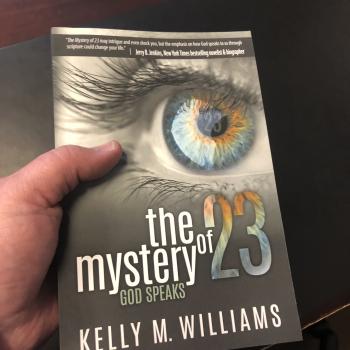One of the common popular criticisms of the two kingdoms doctrine defended by Reformed theologians like David VanDrunen and Michael Horton runs something like this:
- VanDrunen and Horton hold to the two kingdoms doctrine.
- The German Lutheran churches under Hitler justified their refusal to resist Hitler because of their two kingdoms doctrine.
- Therefore the two kingdoms affirmed by VanDrunen and Horton doctrine is dangerous.
The argument is flawed on two grounds. First, it assumes that because Lutherans used their two kingdoms theology to justify their refusal to resist the Nazi regime, the two kingdoms doctrine was therefore the real reason for that refusal. Second, it assumes that the version of the two kingdoms doctrine used to justify the Lutheran response to Hitler was the same as the version of the doctrine being advocated by contemporary Reformed theologians. Both of these assumptions are mistaken.
Take, for instance, a recent article by Joel McDurmon, resident scholar and Director of Research for The America Vision. McDurmon defines his target as "Radical 2k (R2K)" a version of the two kingdoms doctrine that, he says, claims the church has nothing to say to civil authority, because civil authority operates under the category of law, not gospel. This, in McDurmon's account, was precisely the view of Lutheran churches in Germany under Hitler, and he worries that Horton's two kingdoms theology leads in the same direction.
McDurmon admits that both Luther and Calvin were two kingdoms theologians, but he declares that they handled the issue inconsistently. He then ignores Calvin throughout his essay. McDurmon argues that whatever differences there may have been between 20th-century Lutheran, and Luther's own, versions of two kingdoms theology (and most scholars recognize these differences to be significant), Luther failed to work out the doctrine's tensions that crippled it from the start.
Describing the Lutheran response to Hitler, McDurmon relies entirely on a 1978 academic article by Richard V. Pierard, "Why Did Protestants Welcome Hitler?" (Fides et Historia 10/2 [Spring 1978]: 8-29). According to McDurmon, Pierard shows that during the 19th century, Lutheran theologians made a "strong bifurcation between the realms of public and private concerns," distinguishing between law and gospel, creation and redemption, body and soul, state and church. For these theologians, law was the order revealed by God in creation, and could be determined autonomously by the state.
What happened as a result? McDurmon, still relying solely on Pierard's analysis, claims that the radical "German Christian" movement cut law loose from its Christian and biblical moorings, and redefined it in terms of the natural revelation in history of race and Volk. McDurmon rightly disapproves of this, but he notes that the unique circumstances of Nazism aren't the only basis for such a theological maneuver.
The same redefinition of God's law can be done under any secular society, the Nazi extremes serving as only one loud reminder. Whenever the church does not prophetically proclaim God's law as the standards for civil society, other political and social forces will mold and shape the moral landscape of society. Eventually, the morality of the Christian and the morality of the civil order will clash, and the Christian conscience must make tough decisions.
But with R2K doctrine, the establishment will push the church around, and the church will sit silently, afraid to speak to civil matters.
In short, because of their two kingdoms doctrine, German Lutherans surrendered responsibility to teach God's law based on scripture. They tacitly enabled the Nazis to do all that they did. Contemporary two kingdoms theology calls for the same sort of separation between church and politics, McDurmon argues, and should therefore be rejected.
It's a powerful warning based on a sobering story. However, it significantly distorts the history it purports to tell. McDurmon raids Pierard's article for his own purposes, describing German Lutherans in a way that endorses his own polemic. Yet the two kingdoms logic used to justify Hitler's policies was not the doctrine advocated by Horton and his Reformed contemporaries. And in fact, in most cases it was the church's active support for the Nazis' anti-semitism, not a supposed passive refusal to resist, which explains the church's actions in that tragic era. For a different picture, one might look more carefully at Pierard's article, not to mention the massive literature that describes Lutheran church history quite differently than does McDurmon.




